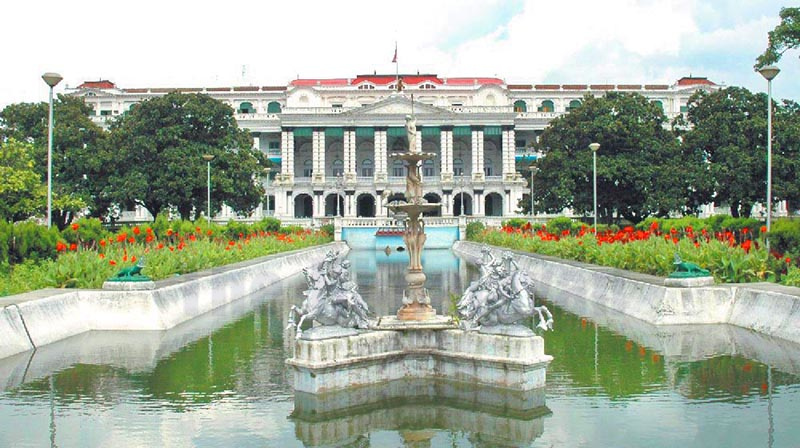Court registrar to handle juvenile cases
Kathmandu, March 1
The government has designated registrar of each district court as authority to carry out investigation into cases related to juvenile delinquency and inspection of observation chamber. A registrar is also has to prepare reports on implementation status of the orders by juvenile bench.
The provision was made in accordance with a decision of February 24 meeting of the Council of Ministers. According to the Cabinet decision made public by the Ministry of Communications and Information Technology, the provision comes into force as per Section 79 of the Children Act-2018.
“Until a probation authority is appointed, Government of Nepal may designate any government authority to act as the probation authority. Functions, duties, power and terms and conditions of service and other provisions relating to the probation authority shall be as prescribed,” reads the section.
The act has a provision of a juvenile court to conduct proceeding, hearing and adjudication of offences committed by children. Juvenile bench consists of district judge, a social service provider and a child psychologist or a child specialist.
If a child under the age of 10 years is found to have committed an offence, no punishment shall be handed down to him/her.
A child aged between 10 and 14 years shall be released by convincing him/her not to repeat such act in future. In the case of involvement in an offence liable to jail sentence, concerned child aged between 10 and 14 years shall be imprisoned for a term not exceeding six months or kept in child correction centre for at least one year,” reads the act.
“In the case of a child aged between 14 and 18 years, s/he shall be liable to one-third of the punishment handed down to an adult for an offence,” reads the act.
An investigation officer may, detain a child according to the degree of offence. Such child may be kept in an observation chamber for a period not exceeding 21 days. If any family member of the child wishes to accompany him/her for, the investigation officer may grant permission for the same by specifying terms and conditions.
The law requires juvenile bench to settle a case involving a child within the period not exceeding 120 days.
Any child committing a criminal offence shall not be deemed ineligible for holding any government position or enjoying state facilities in future.
The law prohibits investigation authority from handcuffing a child.
Cases of juvenile delinquency are increasing at an alarming rate in Nepal, according to the Status of Children in Nepal-2019, recently published by the Ministry of Women, Children and Senior Citizen. Juvenile delinquency is any anti-social or illegal act committed by children who are below the age of 18.
As many as 821 children, including 23 girls, were sent to juvenile correction centres throughout the country in 2018-19 compared to 380 (368 boys and 14 girls) in previous fiscal. Of them, 597 children were in the age group of 16-18, 197 in the age group of 14-15 and 29 other were below the age of 14.
They were found guilty of 15 types of offences, including rape, murder, drug smuggling and theft. As many as 355 underage boys were convicted of rape, 121 of drug smuggling, 112 of murder and 96 of thefts.






